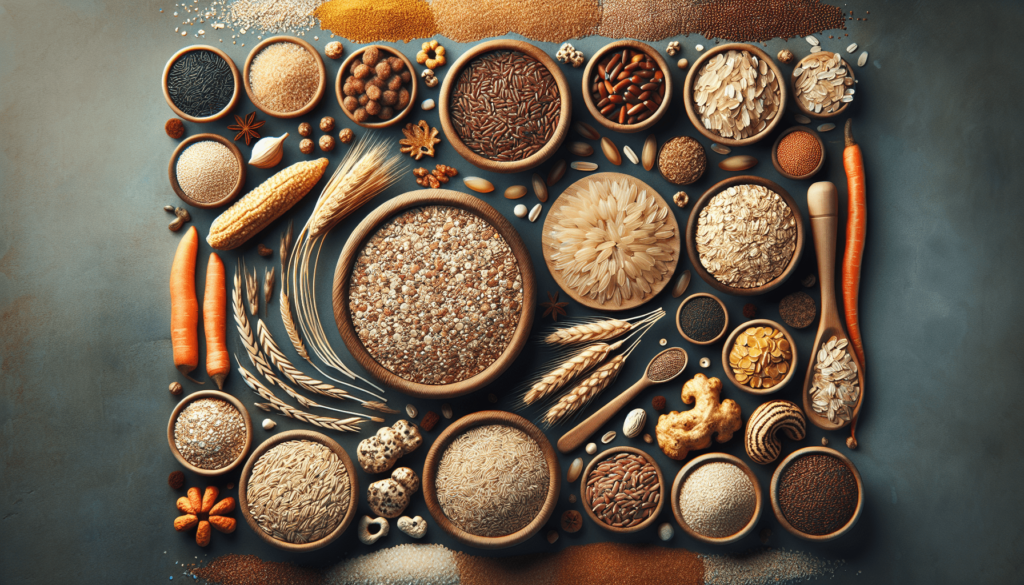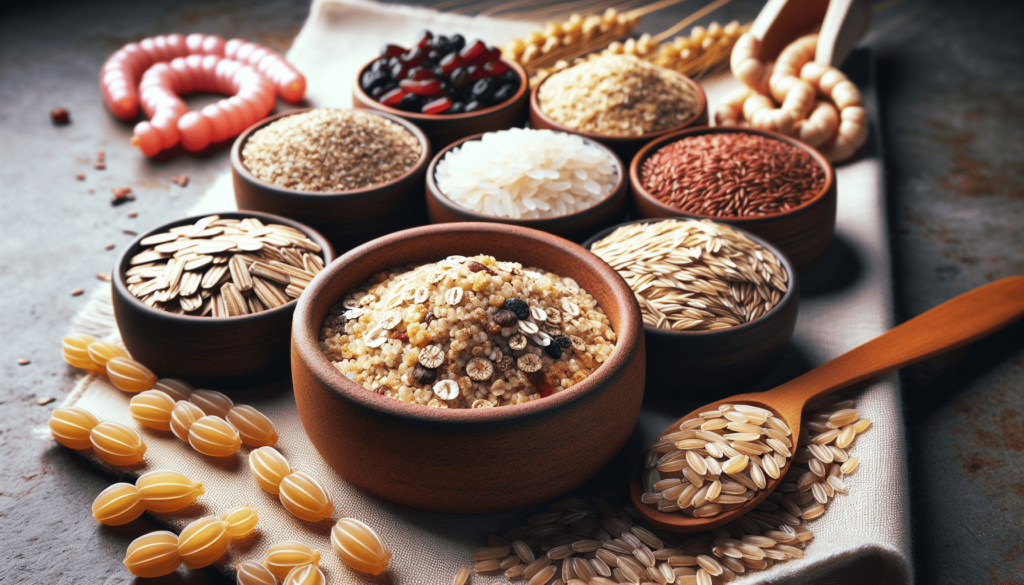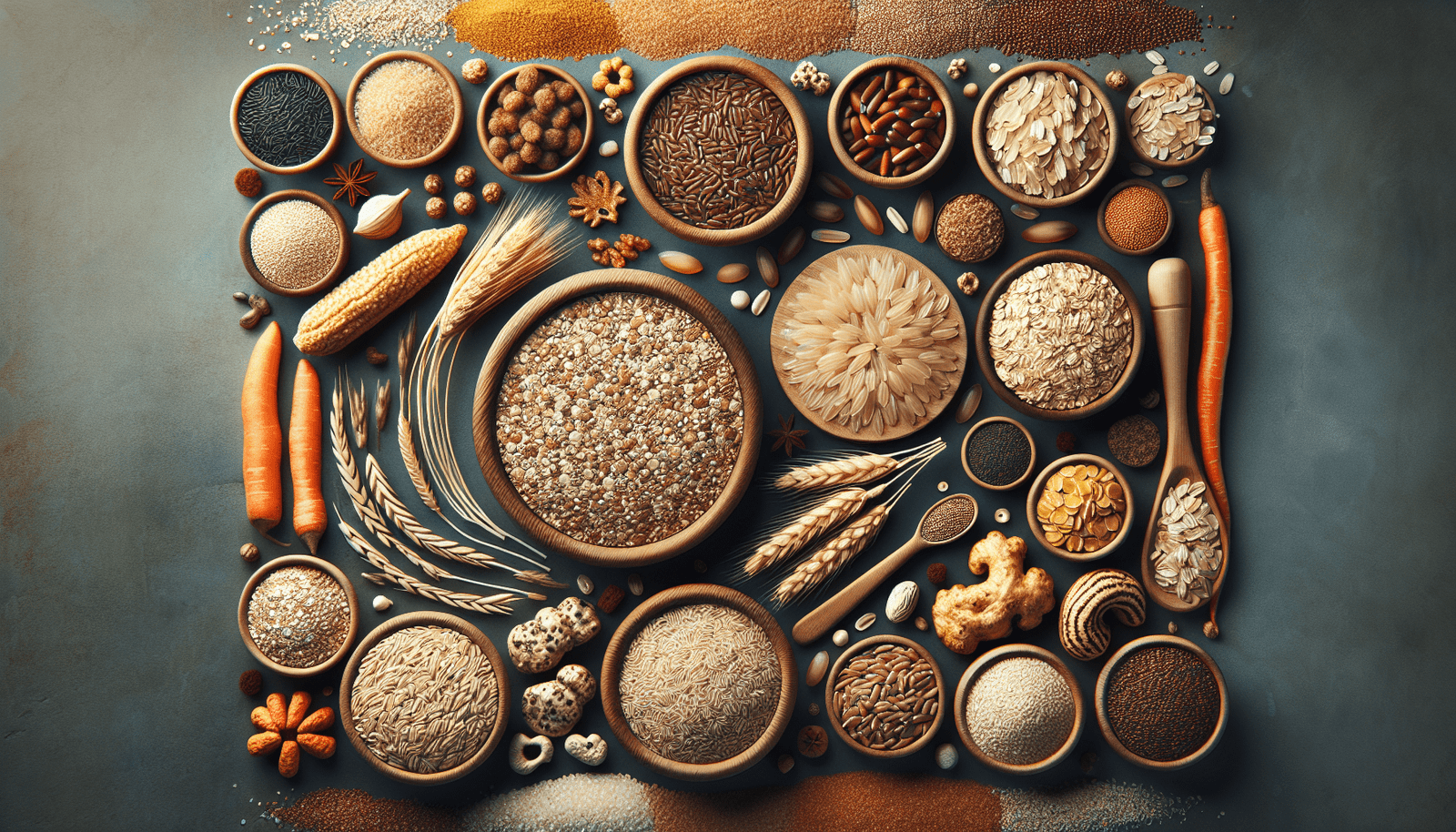In the quest for a healthier gut, it’s important to consider which whole grains can provide the prebiotic fibers that support beneficial gut bacteria. These fibers serve as nourishment for the microbiota in our intestines, promoting optimal digestive health and overall well-being. As you explore the landscape of whole grain options, it becomes crucial to identify those that excel in their prebiotic content. By including these grains in your diet, you can foster a thriving gut environment and reap the numerous benefits it offers.
Barley
What is barley?
Barley is a versatile whole grain that has been cultivated for thousands of years. It is a member of the grass family and is primarily used for its grains, which can be ground into flour, cooked into a delicious porridge, or used for making beer. Barley is known for its rich nutty flavor and chewy texture, making it a popular ingredient in various cuisines around the world.
Barley as a prebiotic fiber source
In addition to its culinary uses, barley is also a fantastic source of prebiotic fibers, which are essentially indigestible carbohydrates that provide nourishment to our gut bacteria. These fibers pass through the digestive system without being broken down, reaching the large intestine where they serve as food for the beneficial bacteria residing there.
Types of prebiotic fibers in barley
Barley contains various types of prebiotic fibers, including beta-glucan and arabinoxylan oligosaccharides. Beta-glucan is a type of soluble fiber that forms a gel-like substance in the digestive tract, helping to slow down digestion and promote feelings of fullness. Arabinoxylan oligosaccharides, on the other hand, are insoluble fibers that provide bulk to stool and support regular bowel movements.
Health benefits of barley for gut bacteria
Consuming barley and its prebiotic fibers regularly can have numerous health benefits for your gut bacteria. By providing nourishment to the beneficial bacteria, barley helps to maintain a healthy balance of gut microbiota. This, in turn, can improve digestion, enhance nutrient absorption, strengthen the immune system, and even aid in weight management. Additionally, the beta-glucan in barley has been linked to lower cholesterol levels and improved heart health.
Oats
What are oats?
Oats are a widely consumed whole grain, renowned for their versatility and nutritional benefits. Oats are grown primarily for their edible grains, which are commonly used for making oatmeal, granola, and oat flour. They have a mild, slightly sweet taste and a comforting, creamy texture when cooked.
Oats as a prebiotic fiber source
Similar to barley, oats are an excellent source of prebiotic fibers that promote the growth of beneficial gut bacteria. These fibers nourish the bacteria in the gut, supporting their colonization and activity.
Types of prebiotic fibers in oats
Oats contain primarily two types of prebiotic fibers: beta-glucan and resistant starch. Beta-glucan is a soluble fiber that forms a thick gel in the digestive tract, slowing down digestion and promoting feelings of satiety. Resistant starch, on the other hand, is an insoluble fiber that acts as a prebiotic by resisting digestion in the small intestine and reaching the large intestine intact.
Health benefits of oats for gut bacteria
Regular consumption of oats and their prebiotic fibers can have a multitude of health benefits for your gut bacteria. The prebiotic fibers in oats help to nourish and stimulate the growth of beneficial bacteria in the gut, contributing to a diverse and healthy microbiome. This can improve digestion, support a strong immune system, and even help regulate blood sugar levels. Oats are also rich in antioxidants and other nutrients, making them a nutritious choice for overall health and well-being.

Quinoa
What is quinoa?
Quinoa is a unique whole grain that has gained significant popularity in recent years due to its impressive nutritional profile and versatility in cooking. While often referred to as a grain, quinoa is actually a seed that comes from a flowering plant. It has been consumed for thousands of years by the indigenous peoples of the Andes region and is now enjoyed worldwide for its nutty flavor and delicate texture.
Quinoa as a prebiotic fiber source
Quinoa is not only a good source of protein and essential nutrients; it also provides prebiotic fibers that are beneficial for gut health. These fibers serve as a source of nourishment for the beneficial bacteria residing in our intestines.
Types of prebiotic fibers in quinoa
Quinoa contains several types of prebiotic fibers, including inulin and resistant starch. Inulin is a soluble fiber that acts as a prebiotic by passing through the small intestine undigested and reaching the large intestine, where it serves as food for the beneficial bacteria. Resistant starch, on the other hand, is a type of carbohydrate that resists digestion in the small intestine, promoting the growth of beneficial bacteria in the large intestine.
Health benefits of quinoa for gut bacteria
Incorporating quinoa into your diet can provide numerous health benefits for your gut bacteria. The prebiotic fibers in quinoa help to nourish the beneficial bacteria in the gut, contributing to a healthy and diverse microbiome. This can support optimal digestion, enhance nutrient absorption, and strengthen the immune system. Quinoa is also gluten-free and rich in antioxidants, making it a nutritious choice for individuals with dietary restrictions or specific health concerns.
Buckwheat
What is buckwheat?
Buckwheat is a highly nutritious whole grain that is often considered a pseudo-cereal due to its usage and nutritional composition. Despite its name, buckwheat is not related to wheat and is actually a member of the rhubarb family. It has been cultivated for centuries and is a staple food in many Asian cuisines.
Buckwheat as a prebiotic fiber source
Buckwheat is a great source of prebiotic fibers, which are essential for maintaining a healthy gut microbiome. These fibers act as food for the beneficial bacteria in our intestines, helping them thrive and support various aspects of our health.
Types of prebiotic fibers in buckwheat
The prebiotic fibers in buckwheat mainly consist of resistant starch and fructooligosaccharides (FOS). Resistant starch, as mentioned earlier, resists digestion in the small intestine and reaches the large intestine, where it serves as fuel for the beneficial bacteria. FOS, on the other hand, is a type of soluble fiber that is fermented by the gut bacteria, promoting their growth and activity.
Health benefits of buckwheat for gut bacteria
Incorporating buckwheat into your diet can have numerous benefits for your gut bacteria. The prebiotic fibers in buckwheat support the growth and diversity of beneficial bacteria, which can lead to improved digestion, enhanced nutrient absorption, and a stronger immune system. Buckwheat is also rich in antioxidants and other beneficial compounds, making it a nutritious choice for overall health.
(Continue the same format for the remaining sections)


